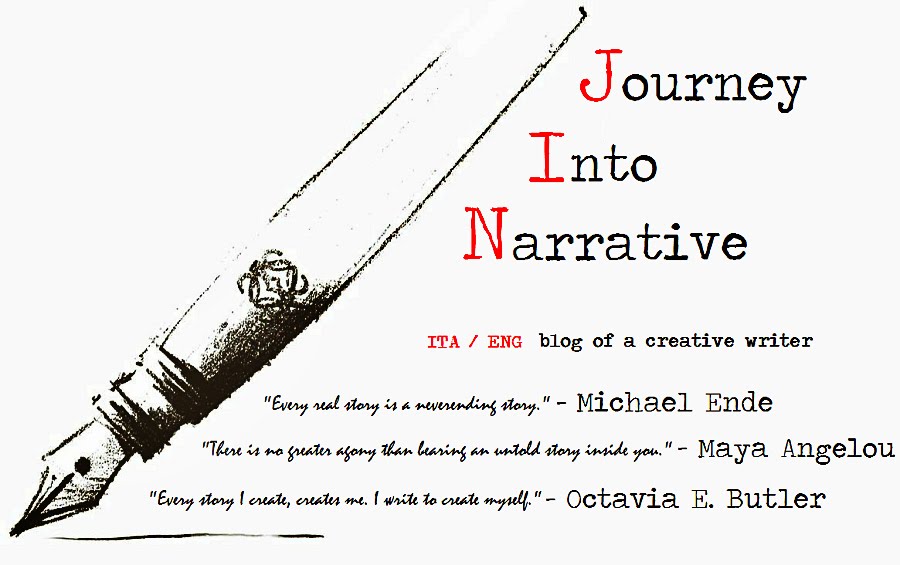Instructions
Begin a scene where someone wants a concrete physical object more than anything else in the world. Now include each of the five key components of a scene as you’re writing:
1. An action. Scenes usually start with
a specific action;
2. Dialogue. Is what two characters say
to each other. All dialogue, and in fact every sentence you write should do two
things, deepen our understanding of the character speaking that dialog or
advance the plot, or both;
3. Specific intimate details;
4. Inner point of view. What are you thinking,
viewing and processing;
5. Definite starting point and a stopping
point. Usually the starting point is the action, while the stopping point is a
conclusion we get by adding the other points to that action.
Write for a bit minutes, then give that character a disease where they learn they have only 24 hours to live. This is your first significant rising action.
Write some more, then give that character a choice between that object and an antidote. This is your second significant rising action.
Finish the story with a conclusion. Your final story should not exceed 400 words.
-----------------------------------------------------------------------------------------------------------------------------
To see the stars again
He stretched
his arm out of the steel bars of the jail, aiming at the rusted key in front of
him, on the damp stone floor. The most perverse torture for those who were
imprisoned in the fortress of Ykson, was the impossibility to see the sky. Small
hatches in each jail’s ceiling were always locked.
Abel’s
hand was all bones. His long nails scratched against the rock, trying to get
his fingers closer to the key. He remembered the days when he was a powerful sorcerer,
but recalled them with regret, thinking about his current situation.
Betrayed
and deceived, Abel was enchained and tortured for years. Dark feelings of hate
and despair lived with him in that gloomy, cubic prison, but when they
disappeared, what remained was just loneliness. He hadn’t never experienced
such a helplessness before. Abel had distanced himself from everyone who
could’ve helped him, because he thought that he could’ve fixed everything on
his own.
However,
while his long dark hair pressed against the cold steel bars, he questioned
himself about his past decisions.
Abel grabbed
the rusted key, feeling a sense of relief just by touching the rough metal, but
suddenly a whip cracked the air, hitting the hand of the prisoner mercilessly.
The key fell down on the floor, jingling while the prison warden approached.
«That is
not for you, necromancer.»
A black
cloak hid a thin, wiry body, but couldn’t conceal the sadistic pleasure in that
feminine voice.
«Did you
enjoy the meal? I think you did. It was the first piece of bread after a week.»
Abel
remained silent. He withdrew his hand and caressed the new whip wound on its
back.
«I bet
you were so hungry that you haven’t noticed the poison on the bread. What if I’d
tell you that you only have twenty four hours left?»
That
discovery left Abel astonished. While was constantly taunting him, the prison
warden tied the extremity of a fine string to the key, and the other extremity
to a small bottle. She approached them to her prisoner, then she arranged an iron wedge in the middle of the string.
«Let’s play,
necromancer. Choose an item and take it, the other one will be dragged to me. An
antidote to save your life, or the key to see the sky?»
Abel
moved fast and grabbed the key. Better to die than to live life in chains, he
thought.
***Personal grade: 7/10***
Personal opinion. Describe a scene isn't an easy task. Do it well, by including all the five key points, it's very hard. This is a decent work. I was very involved when I wrote it, and reading it again after a few months still leaves me satisfied. I think my work goes slightly beyond the sufficiency, despite the number of words was definitely limitating.
